Table of Contents
ToggleIn the fast-paced world of HR, technology is the superhero we never knew we needed. Gone are the days of paper trails and endless spreadsheets. Today’s HR professionals are embracing cutting-edge tools that make managing talent feel like a walk in the park—if that park had automated workflows and data analytics, of course.
Overview of HR Technology
HR technology encompasses a range of digital tools and platforms reshaping the landscape of human resources. Companies increasingly rely on software solutions for tasks such as recruiting, onboarding, and employee engagement. Automation drives efficiency, enabling HR professionals to focus on strategic initiatives rather than administrative chores.
Cloud-based solutions offer flexibility, making it easier for teams to access data from various locations. Data analytics plays a critical role, providing insights that inform decision-making and foster a data-driven culture. With predictive analytics, organizations can identify trends in employee turnover and engagement, leading to more informed talent management strategies.
Artificial intelligence (AI) enhances HR technology by streamlining processes like candidate screening and performance management. Solutions powered by AI can assess resumes faster than humans, ensuring that the best candidates surface quickly. Chatbots assist with answering common employee inquiries, freeing HR staff to tackle more complex issues.
Collaboration tools gain traction, facilitating communication between teams and enhancing employee experiences. Mobile platforms allow for on-the-go access, enabling employees to manage their profiles, benefits, and goals anytime. As organizations grow more diverse and remote, these technologies contribute to fostering an inclusive environment.
Investments in HR technology continue to increase as organizations recognize the benefits of improving employee experience and operational efficiency. Staying updated with the latest advancements ensures that HR teams remain competitive. Adopting cutting-edge platforms and tools helps attract top talent, retain employees, and drive overall business success.
Key Trends Driving Change

HR technology undergoes rapid evolution, with several trends propelling significant changes in the field. Stakeholders increasingly adopt advanced solutions to enhance operations and improve employee experiences.
Artificial Intelligence and Automation
Artificial intelligence plays a pivotal role in transforming HR processes. Employers streamline candidate screening through AI-driven tools, which efficiently evaluate applications. Automation simplifies repetitive tasks, allowing HR professionals to direct their focus toward strategic initiatives. Chatbots serve as responsive assistants, addressing common employee inquiries 24/7. Many organizations leverage these technologies to enhance engagement and satisfaction among staff members. AI-generated insights also inform decision-making, leading to more effective talent management.
Data Analytics in HR
Data analytics serves as a critical component in modern HR strategies. Companies harness analytics tools to gain valuable insights into employee performance and engagement rates. By tracking key metrics, organizations make informed decisions regarding recruitment and retention strategies. Predictive analytics allows HR teams to anticipate staffing needs and identify potential issues before they escalate. Employers increasingly rely on data visualization to present trends and outcomes, facilitating discussions around improvements in workplace culture and productivity. These data-driven approaches enhance strategic planning, thereby strengthening overall workforce management.
Employee Experience and Engagement
Emerging trends in HR technology focus on enhancing employee experience and engagement. Modern organizations prioritize tools that foster a supportive and productive work environment.
Remote Work Technology
Remote work technology facilitates seamless collaboration for distributed teams. Solutions like video conferencing software and project management tools support effective communication. High-quality platforms enable real-time feedback and maintain team cohesion. Companies seek technologies that promote inclusivity and connection, minimizing feelings of isolation among remote employees. Effectively integrating these tools into daily workflows can lead to increased productivity and engagement.
Employee Wellness Solutions
Employee wellness solutions contribute significantly to a positive workplace culture. Health tracking apps and wellness programs help organizations address mental and physical well-being. Technologies that offer personalized wellness plans can boost overall employee satisfaction and retention. Access to mental health resources fosters a supportive atmosphere, encouraging employees to prioritize self-care. These initiatives demonstrate an organization’s commitment to employee well-being, enhancing loyalty and performance.
Innovative Tools and Platforms
Innovative tools and platforms redefine the landscape of HR technology, offering capabilities that enhance efficiency and employee experience.
HR Management Systems
HR management systems serve as centralized platforms for managing employee data. These systems streamline processes like payroll, benefits administration, and compliance tracking. Data security continues to be a priority, ensuring sensitive employee information is protected. Integrating mobile access enables HR teams to manage tasks remotely, catering to a workforce that often operates outside traditional office settings. Furthermore, user-friendly interfaces increase adoption rates among employees, allowing them to update their information easily. Real-time reporting capabilities facilitate informed decision-making, enhancing overall organizational performance.
Recruitment Technologies
Recruitment technologies transform the hiring process through AI-driven tools and analytics. Applicant tracking systems simplify resume screening, identifying qualified candidates rapidly. These technologies allow for asynchronous interviewing, accommodating diverse candidate schedules and locations. Enhanced candidate engagement tools, such as chatbots, provide instant communication and support throughout the application process. Social media integration broadens the recruitment reach, tapping into passive candidates who may not actively seek new opportunities. Analytics dashboards present data on recruitment metrics, aiding in refining hiring strategies and improving outcomes.
Future Outlook
Emerging trends in HR technology reveal a promising future where AI and data analytics lead the way. Companies prioritize automation to enhance processes, helping HR professionals allocate time toward strategic initiatives. Advancements in AI significantly impact candidate screening, performance management, and engagement strategies, enabling efficient workflows.
Predictive analytics plays a crucial role in anticipating staffing needs. Organizations leverage this tool to assess future workforce requirements, ensuring they maintain optimal staffing levels. Data visualization techniques further improve strategic planning, simplifying the presentation of complex insights and trends.
Employee experience remains a central focus as HR technology evolves. Remote work solutions continue to gain traction, fostering collaboration among teams regardless of location. Companies implement tools like virtual meeting platforms and project management software to support effective communication.
Wellness technology also trends upward, promoting employee health and satisfaction. Tailored wellness programs and health tracking apps encourage a balanced work-life approach, contributing to improved retention rates. Companies find that investing in their employees’ well-being leads to enhanced performance.
Mobile-friendly HR platforms are now a standard expectation. User-friendly interfaces empower employees to manage their own data, boosting engagement and satisfaction. These tools not only facilitate streamlined processes but also make information readily accessible.
HR management systems will further integrate features that enhance data security and compliance tracking. Businesses recognize that protecting sensitive information remains a top priority in a digital landscape. Investment in these technologies is crucial for ensuring seamless operations and maintaining competitive advantages.
As organizations embrace these advancements, the landscape of HR technology will continue to transform, helping them adapt to changing workforce needs while enhancing overall efficiency.
The evolution of HR technology is reshaping the workplace in profound ways. As organizations embrace advanced tools and platforms, they’re not just streamlining processes but also enhancing employee experiences. The integration of AI and data analytics is empowering HR professionals to make informed decisions that drive engagement and satisfaction.
With a focus on remote work solutions and wellness technologies, companies are prioritizing the well-being of their workforce. The shift towards mobile-friendly platforms ensures that employees can access essential information anytime, anywhere. As these trends continue to unfold, the HR technology landscape will adapt, paving the way for a more efficient and inclusive future.





